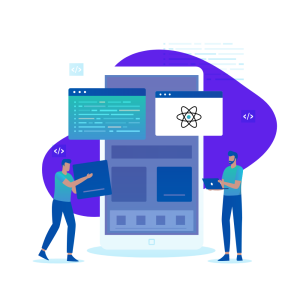31.05.2022
WordPress Development
Don’t Reinvent the Wheel: Use WordPress as an Application Framework
READING TIME: MIN
Table of Content
Did you know that you can use WordPress to develop custom web apps? Our WordPress Agency for Development has said it a million times before, and we’re going to say it again – WP is so much more than a blogging platform.
Once you’ve gotten over the publication mindset, you’ll notice that you have a solid foundation to work with. There’s a lot more to WordPress than you may assume. In fact, many large-scale enterprise organisations have already realised that, and they’re leveraging the CMS’s power to its full potential.
Feeling hesitant to start viewing WordPress as an application framework? Don’t worry, we don’t expect you to just take our word for it. This is why, in this article, our WordPress development agency will take a deeper dive into the subject at hand.
Trust us, you’ll be pleasantly surprised at how many untapped components are there for you to build upon. Let’s get started!

Applications Explained
In a nutshell, application software (or app for short) is software designed to execute a set of coordinated operations, tasks, or activities for the convenience of the user.
Because mobile devices have become so common, most people think of applications as something that runs on a phone or tablet. However, the term has extended to PCs and devices like Apple TV. Our WordPress Agency for Development reminds you that, in most cases, an application will include the following capabilities:
- User input processing capability
- Data storage
- Data retrieving
- Management of sessions
- Association of one type of information with another (e.g. information might be linked to a single user or users)
- Information security
Apart from that, applications usually have additional features, such as location-based services, alerts, date and/or time-specific functionality, and so on.
In summary, an application is anything that does more than merely provide information to the user and requires some sort of data exchange from a data storage, no matter how simple.
Our WordPress development agency believes it’s important to properly differentiate between websites and applications. This way, you’ll be able to clearly see how you can use WordPress to build one of the two.
In this context, remember that a site is anything that displays data, regardless of how complex it might look. An application, on the other hand, is anything that transmits, stores, and retrieves data.
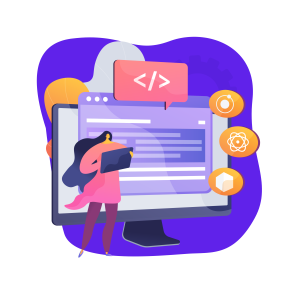
Web Applications Explained
A web app is simply an application that runs in a web browser. Our WordPress Agency for Development wants you to have in mind that with some web apps, the browser technology is concealed.
For instance, the browser technology might be hidden when you’re integrating your web app into a native Android or iOS app, when you’re running an app using Adobe AIR, or when you’re running a webpage as an application in Google Chrome. However, there is still a mechanism inside these applications that parses HTML, CSS, and JavaScript.
A web app may also be thought of as a website with additional application-like features. There is no clear distinction between a website and a web application, but you’ll certainly know which of the two you’re using – it’s one of those intuitive things.
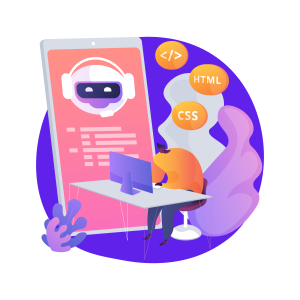
How Does a Web Application Function?
Our WordPress development agency wants you to remember that in order to work, a web app requires a web server, an application server, and a database. Web users need a web browser interface and an Internet connection to access a web app.
What happens is that when a user initiates a request, the web server passes the request to the appropriate web application server. After that, the web application server processes the data and sends the results back to the web server.
Finally, the web server displays the obtained results to the user’s PC, mobile device, tablet, or another device.
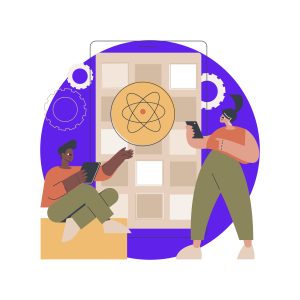
A Web App’s Features
The following are some common characteristics of web apps and applications in general that our WordPress Agency for Development believes it’s important to remember. The more of these elements a website has, the more likely it is to be referred to as a web app. Let’s take a look at some of the features:
- Interactive elements: Web apps typically have more interactive user interface (UI) features. Toolbars, drag-and-drop items, rich text editors, and sliders are all examples.
- Tasks-focused rather than content-focused: Web applications are created to assist the user in completing specific tasks. There are some applications that are mainly focused on content. Take Facebook or Twitter as an example, where a typical session consists of around 90% reading. However, these apps provide an entirely different way of browsing content which differs from the typical web browsing experience.
- Logins: Our WordPress development agency reminds you that web apps usually have various tiers of users.
- Device capabilities: Web apps can run on both desktop and mobile. This means that depending on the device used to access the web app, it may behave differently. For example, web apps will adjust to various screen sizes and resolutions.
- Offline work: It is best to have your web apps function offline wherever feasible. Take Gmail, for example – this web app allows you to draft emails offline.
- Combos: Web apps can connect to one or more web apps. A web app can use a variety of web services and APIs to send and retrieve data.
Can WordPress Really Be Viewed as an Application Framework?
With all that being said, our WordPress Agency for Development knows it might still be hard for many people to start viewing WP as an application framework. It is absolutely clear that the CMS is very different from actual frameworks like Rails or Symfony.
In this context, WordPress isn’t a framework by any means, it’s more of an application. This is something that Tom McFarlin talked about in his blog post “A Case for Building Web Applications on WordPress”. In it, McFarlin outlined the difference between a framework and an application. Here’s his take on the matter:
- Frameworks have no functionality out of the box. They offer a framework for an application, as well as a mechanism to interface with the database and transmit data to and from the front-end. However, our WordPress development agency reminds you that nothing is being performed, thus the functionality must be developed.
- In contrast, WordPress can be viewed as an application because you may start building a website right away after installing it, thanks to the many themes and plugins available.
McFarlin makes a good point by saying that WordPress provides APIs that allow us to extend its capabilities. This means that custom features can be built to operate alongside or on top of the primary application. And this is the main difference between actual frameworks and WordPress – frameworks have no functionality when they’re installed, whereas WordPress does.
This is why McFarlin proposes to think of WordPress as a foundation, rather than a framework. Our WordPress Agency for Development agrees with this definition as we, ourselves, have always said that WP is, first and foremost, a solid foundation that can be scaled to meet the specific demands of businesses and users.

When Should You Use WordPress to Create Custom Web Apps?
Since we don’t want to sugar-coat anything, we’ll say that, in some cases, WordPress might not be the greatest foundation for building a highly customised business application that contains sensitive data (more on that in the next point). However, our WordPress development agency can assure you that the CMS can be an excellent choice if:
- A non-technical user has to update your app.
- Your app requires a user-friendly back-end.
- You want to quickly create a simple-to-moderately complex app.
When you opt for WordPress website development with a managed host (you can check out our expert picks for the best hosting companies for high-traffic WordPress websites), you’ll get a general framework (or a foundation).
Then, you can build upon this foundation by using plugins and custom-made functionalities. All in all, with WordPress, you’ll be able to set up the core of your app much faster.
Our WordPress Agency for Development reminds you that this is possible due to the fact that you won’t have to worry about database architecture, security, APIs, or user administration.
Why? Because WordPress takes care of everything for you. Managed hosting, on the other hand, will handle staging, backups, version control, and performance optimization. Essentially, there’s no need to reinvent the wheel.
You may employ the solutions that others have already devised, allowing you to get started right away and drastically reduce expenditures. WordPress is perfect for anyone who wants a platform that offers the tools you need to quickly start building a web application.
Note: Although it is quite contradictory, our WordPress development agency feels compelled to specify that WP can be viewed as both a simple and highly complex platform. Simple because it provides a straightforward user experience and content management. Highly complex because the platform can be practically scaled to infinity. In this context, it isn’t impossible to build a complicated, customised application with WordPress. To do that, though, you’ll have to understand the ins and outs of the CMS so that you can max it out to its full potential.
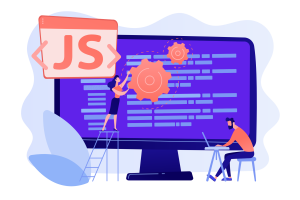
When Not to Use WordPress to Create Custom Web Apps?
Like our WordPress development agency already mentioned, WP isn’t suitable for all types of applications. Here are some reasons why you shouldn’t utilise WordPress to create your app:
- You intend to licence or sell the technology that powers your website: WordPress is licensed under the GNU General Public Licence, version 2 (GPLv2), which imposes limits on how software created with it can be distributed. This is a convoluted matter, but the main concept is that the GPLv2 will apply to the code you distribute if you decide to sell the underlying source code of your application.
- Another platform has more suitable features: Our WordPress Agency for Development recommends you use something other than WP if another platform, framework, or bundle has 80% of the functionality you need for your web app and WordPress doesn’t.
- You don’t care about flexibility that much: In most cases, upgrading your theme or switching plugins on a WordPress site is faster than creating functionality from scratch on another platform. However, creating a native app or programming in plain PHP will be the preferable alternative in circumstances when efficiency and performance are more essential than the ability to easily update the application. If you want your app to just do one simple thing, you should develop it at a lower level.
- Your app needs to be highly real-time: Our WordPress development agency can tell you that one of WP’s drawbacks is its dependency on standard web server architecture. Here’s how a typical WordPress setup works: a user accesses a URL, which interacts with a web server (such as Apache) through HTTP, launches a PHP script to produce the page, and then returns the whole page to the user. This means that if your application requires real-time and fully asynchronous functionality (for example, a chatroom-like software or a multiplayer game), WordPress might not be the ideal solution. The good news, however, is that WordPress is migrating more and more of its functionality to JavaScript, where computation can be delegated to the browser and frameworks like React can be utilised to build highly dynamic experiences. So, our WordPress Agency for Development expects this will become less of a problem in the future.
Note: Our WordPress development agency reminds you that WP is a constantly evolving platform. In this context, what might seem impossible to achieve with the CMS today, might become a core functionality with future releases. So, remember to stay updated with everything happening in the WordPress world!

Major Benefits of Using WordPress as an Application Framework
As we discussed in the previous points of this post, every job will require a different programming language or software tool. Our WordPress Agency for Development already told you when you should use WP to create custom web apps. Now, it’s time to further solidify your decision by looking at some of the major advantages that come with this approach.
Already Using WordPress? You’re a Winner!
If you currently use WordPress for your primary site, adding the features you want may be as simple as installing a plugin.
Our WordPress development agency reminds you that it will save you time and make things easier for your users if you integrate your app into your existing WordPress site.
So, if your application is pretty simple, you may programme the functionality of your web app using a custom plugin on your WordPress site.

WordPress Makes Content Management Simple
WordPress is so widely popular because the CMS allows its users to add and edit content super easy. You don’t have to hire a web designer every time you want to make a little modification to your site, which is a major advantage. With WordPress, you are able to easily construct unique menus and navigation components without having to write code.
Our WordPress Agency for Development recommends you use WP as an application framework if your web app is focused on chunks of content. The Custom Post Types API for WordPress makes it easy to swiftly set up and manage custom content.
Remember that even task-oriented apps will usually have a few pages for information, documentation, and sales. WordPress allows you to manage both your app and your content from a single place, which is pretty neat.
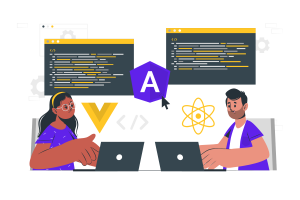
WordPress Makes User Management Simple and Secure
WordPress comes with everything you’ll need to add administrative and end users to your website.
The Roles and Capabilities system in WordPress is extendable, allowing you to manage what actions are accessible for specific groups of users.
Our WordPress development agency reminds you that this system is also responsible for managing access to content. By creating new roles and capabilities, you’ll be able to govern who has access to different parts and functionalities on your site.

Large Variety of Plugins
Chances are, if you’re thinking about extending your site’s functionality, a plugin for that already exists to save you time and money.
For instance, most websites and web applications will need a few essential plugins that take care of things, such as cache output for quicker browsing, Google Analytics for visitor monitoring, sitemaps, SEO tweaking, and so on.
Our WordPress Agency for Development can assure you there are numerous well-supported plugins for each of these tasks.
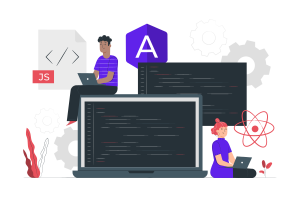
Flexibility
WordPress can be viewed as a full-blown framework that can do a lot. Furthermore, because WordPress is built on PHP, JavaScript, and MySQL, you can simply integrate anything you can develop in PHP/MySQL (that is pretty much anything you can imagine) into your WordPress application.
WordPress and PHP/MySQL are generally good enough for the majority of tasks you might wish to accomplish. Remember that having a single platform that can scale alongside your business allows you to execute and pivot more quickly.
Our WordPress development agency can assure you that with WP, you can evolve your project by beginning with a simple one-page website to adding Progressive Web App support, and finally launching iOS and Android wrappers for the app.
The nice thing about following this approach is that you’ll have the same database of users, and you’ll be utilising the same development platform at every phase.
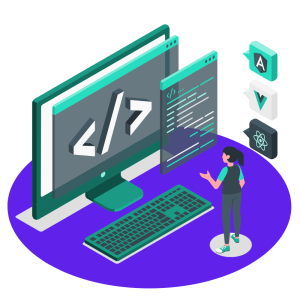
Regular Security Updates
The developers behind WordPress respond quickly to security flaws and provide regular updates to solve them. It’s as if you have millions of people testing and fixing your software all the time, which is another major benefit of using WP as an application framework.
Our WordPress Agency for Development reminds you that the CMS is a significantly more secure platform for your site and web app than anything else available. You just need to set it up correctly and upgrade to the latest versions as they become available.
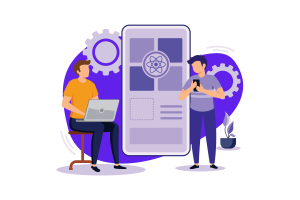
Cost
WordPress and the things that power it (PHP and MySQL) are completely free. The majority of plugins are also free.
It’s true that servers and hosting might be costly, but depending on the size of your web application and the amount of traffic it receives, they can be reasonably priced.
Of course, if you need bespoke functionality that isn’t available in any existing plugins, you may need to hire a developer.
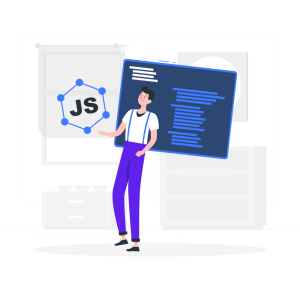
How to Create Web Apps with WordPress?
Our WordPress development agency is sure you’ve heard a lot about how important responsive web design is for a good user experience. You may, however, bridge the gap between mobile-friendly design and the native app experience with web applications.
To put it another way, you can make websites that have app-like functionality, fast loading times, and features like notifications.
You have two options when it comes to developing web applications with WordPress. One uses Progressive Web Apps (PWAs), while the other takes a more comprehensive approach. Let’s take a look at each one separately.
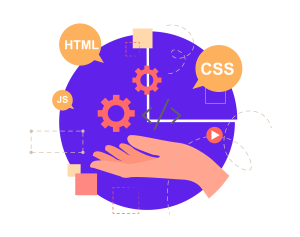
Plugins for Building WordPress Web Apps
We guess that at this point you wouldn’t be surprised if our WordPress Agency for Development told you that there are plugins available to assist you in developing web applications. These tools allow you to ‘convert’ WordPress into a Progressive Web App (PWA).
An example of such a plugin is AppPresser which helps you construct basic web applications using a mechanism similar to the WordPress customizer.
This solution comes with a variety of web app ‘presets’ to get you started, including online stores, blogs, and more. It allows you to deliver a User Experience (UX) that seems more native to mobile devices by providing optimised templates and different options to choose from.
Similar plugins in this category that our WordPress development agency can recommend, include Progressive Web Apps and MobiLoud, which are other ‘no-code’ solutions.
All of these tools, however, have a similar disadvantage in that they aren’t as effective for constructing highly customised web apps.
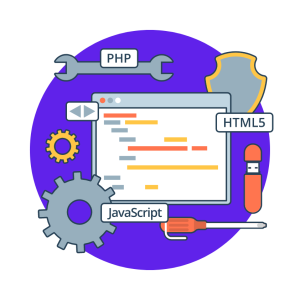
Using WordPress as Your Web API’s Back-End
Our WordPress Agency for Development firmly believes that the best way to generate web apps with WP is to utilise the CMS as a back-end for your project. Remember that WordPress has all of the tools you’ll need to build custom fields and post types, as well as store all of the necessary data.
This means you can leverage WordPress’ power to process all of the data your app needs while picking up a different front-end solution that is better fitted for a web app experience.
Some tools for processing custom data with WordPress that we can recommend are Pods and Advanced Custom Fields. These plugins allow you to extend WordPress’ database structure to meet the demands of your web app.
Once you’ve progressed past that point, you’ll need to consider data retrieval. This is where our WordPress development agency wants to point your attention to APIs. To power your app’s front-end client, you may utilise WordPress’ REST API functionality to connect to a JavaScript library like Node or AngularJS.
Of course, you may alternatively manage your front-end with a simpler framework like Bootstrap. The idea is that you have a lot of possibilities.
We absolutely love this method of isolating the back-end framework from the front-end client since it allows you to build more scalable web apps while also enabling you to be more flexible during the development cycle.
Furthermore, because WordPress helps eliminate the ‘reinventing the wheel’ phase, creating a Minimum Viable Product (MVP) becomes that much easier.

MVC Framework vs. WordPress: Can WordPress Compete?
Our WordPress Agency for Development reminds you that many software development frameworks employ the model-view-controller (MVC) architectural paradigm. Code reusability and separation of concerns (SoC) are the two key advantages of employing an MVC architecture.
Now, WordPress clearly does not follow an MVC architecture. However, the CMS does encourage code reuse and SoC in its own unique way. Despite the fact that WordPress has earned a reputation as a tool for non-technical users, thanks to its ease of use, expert developers know that the CMS is much more powerful than what initially meets the eye.
For instance, the professionals at our WordPress development agency can tell you that MVC isn’t the only approach to creating an app. Thus, considering WordPress as a viable app framework becomes a very real and applicable thing.
An app may be developed in WordPress by leveraging the existing capabilities of the CMS rather than stitching something odd together.
WordPress, for example, provides an integrated user management system with five distinct levels of access. This means you don’t need to be particularly tech-savvy to set up a user management system for your site or app. Authentication is incorporated as well, so you can easily keep track of your sessions.
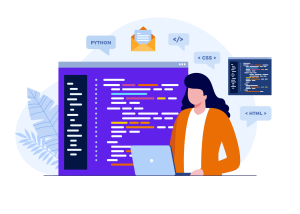
Additionally, our WordPress Agency for Development reminds you that WP has a great community of people behind it whose job is to keep an eye out for security flaws. This is a major advantage since you won’t need to conduct your own security audits or patches.
Another benefit worth noting is that WordPress can send transactional emails for your app. However, if you’re sending a high number of emails, you’ll need to utilise SMTP. This shouldn’t worry you, though, because you can easily achieve that with the help of a plugin.
Moreover, you may use WordPress permalinks to change the way in which URLs are generated. By choosing the CMS, you’ll be able to rewrite rules to create a URL structure that can be used to put together database queries.
Our WordPress development agency would also like to bring your attention to WP forms, which is one area where the WordPress community has really come up with some truly wonderful capabilities. Here, we aren’t referring to simple input fields because WordPress forms are much more than that.
WordPress forms are nearly self-contained apps that can conduct computations, send notifications, and manipulate data. Form plugins can provide input capabilities to your app’s front-end, allowing you to update your database. Some form plugins even come with their own API (a good example of this is Forminator).
As you can see for yourself, WordPress offers a myriad of solutions that can free up time and resources, thus allowing you to concentrate your efforts on the actual practicality and innovation that you’re trying to achieve with your app.
Our WordPress Agency for Development believes that all of these amazing perks make WP a competitive alternative to the MVC architecture and an excellent option for building applications.

Yes, WordPress Can Be Successfully Utilised as an Application Framework!
And so, to wrap things up, WordPress allows you to build web apps in a variety of ways. If you want something basic, you may use plugins like AppPresser or MobiLoud, which can assist you in rapidly launching a minimal yet effective app.
You may, on the other hand, utilise WordPress for the back-end of your app by choosing a framework like React for the user interface. Our WordPress development agency prefers this method, as it provides you with a lot more flexibility and allows you to use WP for far more complicated web apps.
Remember that there are several underused components in WordPress that can get pretty much any job done, as long as you understand how to use them properly. When developing apps, keep in mind that the purpose is to address a specific problem. You may go for a costly solution but beware – the last thing you want to do is over-complicate a basic problem.
A simpler framework, such as WordPress, can sometimes suffice and meet your demands. Not to mention that WordPress isn’t actually ‘simple’. Our WordPress Agency for Development reminds you that WP is a highly advanced technological solution that can be used even for large-scale projects (in fact, this is exactly the lane in which WordPress shines!).
You just need to value WordPress for what it is and use it in the manner in which it was intended to be used. Only after you do that, you’ll be able to realise it’s far more powerful than you imagined.
More on The Topic
- Challenging Conventional Wisdom in WordPress Scalability
- Understanding Client Needs: The Art of WordPress Discovery
- Leveraging WordPress REST API: Transforming Data Handling
- Navigating WooCommerce Performance: Real-World Strategies
- The Role of AI in WordPress Development Workflows
Tags: appapplicationapplication frameworkcustom web appframeworkMVC vs WordPressprogressive web apppwaREST APIweb appweb applicationWordPress application frameworkWordPress REST API
The content of this website is copyrighted and protected by Creative Commons 4.0.



